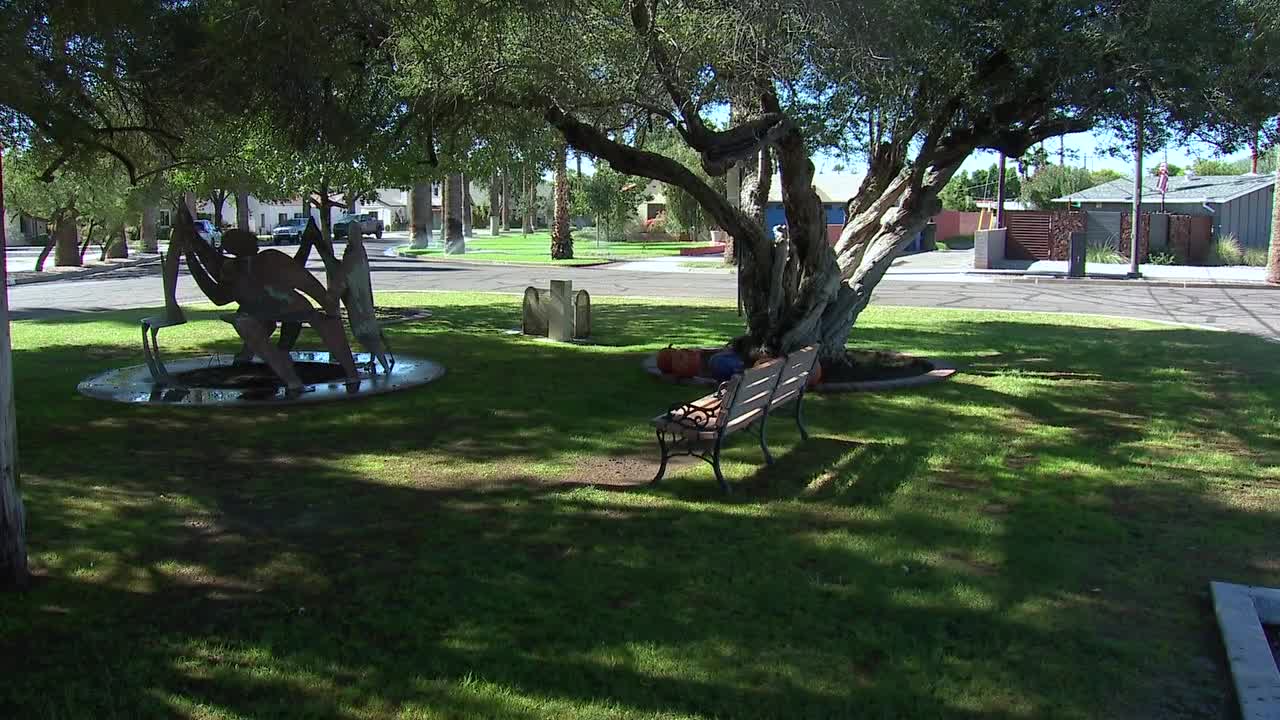PHOENIX — A new state housing law could dramatically reshape some of Phoenix's most treasured historic neighborhoods, sparking heated debate between residents who want to preserve century-old character and supporters who say the changes are needed to make homeownership more affordable.
The controversial rezoning proposal, mandated by state law, would allow duplexes, triplexes, and fourplexes in areas within one mile of downtown Phoenix that are currently zoned only for single-family homes. Historic districts like Willo, Encanto Palmcroft, La Haciend,a and Los Olivos could see significant changes if the measure passes.
Many homes in the historic Willo District are a century old and carry national historic designations. The neighborhood is even part of a popular annual home tour that celebrates its architectural heritage.
Bradley Brauer, president of the Willo Neighborhood Association, fears the community could lose its historic designation entirely.
"The neighborhood could lose its historic designation," Brauer said. "We really wanted to point out how losing one of these houses that will never be can never be built again would do to the neighborhood."
Brauer was among many residents who spoke out against the zoning changes at Wednesday's city council meeting. Other concerned residents shared similar fears about the future of Phoenix's historic areas.

Do you have a concern in your community or a news tip? We want to hear from you!
Connect with us: share@abc15.com
"These houses will be gobbled up. They will be bulldozed to the ground. In a year, we're going to have a completely different landscape. The historic districts will be decimated," one resident said during public comment.
The city maintains that existing design rules will still apply in historic districts, but neighborhood advocates remain skeptical.
Supporters of the housing law argue it will create much-needed affordable housing options for younger generations who have been priced out of the market.
"It's not possible for the generations behind me," one supporter said during public comment.
Senator Analise Ortiz, who co-sponsored the state legislation, said she was motivated by her own experience being priced out of buying a home in Maryvale.
"The few that were on the market were very old and not in great condition, because it has become so hard to build missing middle housing," Ortiz said.
Some developers say it's possible to increase housing density while preserving neighborhood character. Rebecca Hidalgo, a realtor behind the new "Bower Willo" development in the district, said her project demonstrates this balance.
"Instead of having, say, 10 houses, we have 28," Hidalgo said. "We actually redesigned our heritage homes to incorporate a lot more of the architectural feel that you would see, just because it was really important for us to be a part of the community."
The Phoenix City Council delayed its vote on the proposal until November 19. If the city doesn't update its zoning ordinances by January 1, the state's new middle housing law will automatically take effect, and Phoenix could lose local control over where multi-family structures are built and how they are designed.
Brauer emphasized that neighbors aren't opposed to affordable housing but want thoughtful implementation.
"We don't want to keep anyone out," Brauer said. "Multifamily housing is not something we're afraid of. What they're doing here is just creating a gift for developers, which doesn't create affordable housing for the younger folks."
City officials stress they are responding to a state mandate rather than pursuing local policy changes.
"I just want to reiterate that this is not a city-led initiative that is required by state law for the city to comply," said Tricia Gomes, Planning and Zoning Deputy Director. "So staff has put forth a text amendment that we believe complies with the state law and will be considered by city council on November 19."
Councilmember Betty Guardado expressed frustration with the state's approach to local governance.
"If the state would give us more leeway, if the state would let cities really run their cities, and let us implement different laws that would help protect neighbors, then I think it would be a completely different conversation that would be having right now," Guardado said.
The mayor is expected to address the issue when the city council votes on the proposal on November 19.
This story was reported on-air by a journalist and has been converted to this platform with the assistance of AI. Our editorial team verifies all reporting on all platforms for fairness and accuracy.





